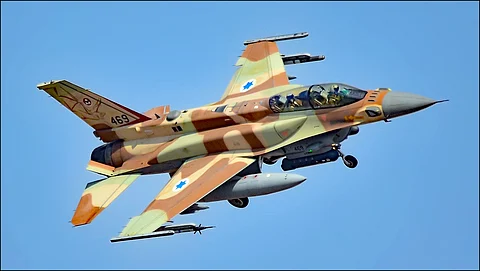

The Israeli military launched a series of airstrikes on southern Syria late Tuesday night in response to rocket fire targeting the Golan Heights from Syrian territory.
Earlier that evening, two BM-21 ‘Grad’ rockets were launched from Syria, landing in the Golan Heights. A group identifying itself as the Islamic Resistance Front in Syria—reportedly composed of Shia fighters and remnants of the Syrian Social Nationalist Party (SSNP), which previously backed former President Bashar al-Assad—claimed responsibility for the attack. The group released a video online showing the launch site.
Although Israeli military assessments indicated that the rocket fire originated from factions unaffiliated with the current Syrian government, Israel responded with immediate artillery strikes into southern Syria.
Shortly after, the Israeli Air Force escalated the response with large-scale airstrikes across Syria’s Quneitra and Daraa governorates. The Israeli military issued a statement holding the Syrian government accountable, stating that it was targeting Syrian military weapons depots.
In March, reports emerged that Israeli forces—who have expanded their presence in southern Syria following the fall of Assad’s government last year—had warned Syrian military units against operating within 40 miles (65 kilometers) of what Israel now refers to as its “security zone.”
Despite attempts by the new Syrian government, led by former al-Qaeda in Syria commander and current President Ahmed al-Sharaa, to comply with Israeli and U.S. demands—including the disarmament and expulsion of Palestinian militant groups and the initiation of talks on normalization—Israeli strikes have continued unabated.
In an interview last week with The Jewish Journal, President al-Sharaa stated that Syria and Israel now share “common enemies” and could potentially play a joint role in maintaining regional stability. In the interview, Sharaa also expressed openness to dialogue with Israel and a desire to explore a path toward peaceful coexistence.
However, with Syria largely disarmed following Israel’s destruction of much of its military infrastructure—including weapons factories, supply warehouses, and air defense systems—Damascus may no longer be in a position to compel Israel to the table on any kind of equal footing.